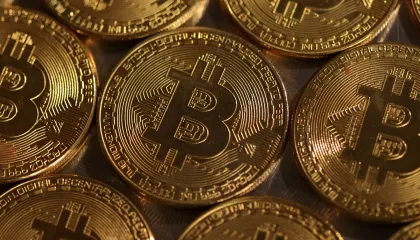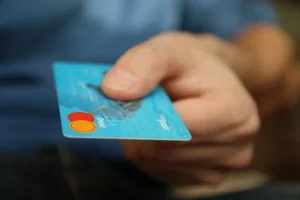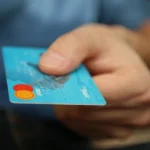Bitcoin has become one of the most talked-about financial innovations in recent years. As a decentralized digital currency, it has attracted the attention of investors, tech enthusiasts, and even governments.
But what exactly is Bitcoin, how does it work, and how can you get your hands on it? In this guide, we’ll answer all these questions and more.

What is Bitcoin?
A Brief Overview
Bitcoin is a form of digital currency, or cryptocurrency, that operates on a peer-to-peer network without the need for a central authority, such as a government or a bank. It was created in 2008 by an unknown person or group of people using the pseudonym Satoshi Nakamoto and was introduced as an open-source software in 2009. Bitcoin is often referred to as the first cryptocurrency because it pioneered the idea of a decentralized, digital, and secure form of money.
Bitcoin is based on blockchain technology, which is essentially a distributed ledger that records all transactions made with Bitcoin in a transparent and immutable way. This decentralized structure means that Bitcoin is not controlled by any single entity, like a central bank, and operates on a global scale.
How Does Bitcoin Work?
Blockchain Technology
At the core of Bitcoin’s operation is the blockchain, a digital ledger that stores all Bitcoin transactions. The blockchain is maintained by a network of computers, called miners, that validate and record transactions. Each transaction is bundled into a “block” and added to the existing chain of blocks, creating a secure and verifiable record of all Bitcoin exchanges.
Decentralization and Security
Bitcoin’s decentralized nature is one of its key features. Unlike traditional currencies, Bitcoin isn’t governed or controlled by any central authority. Instead, its network is powered by thousands of computers around the world. This decentralization makes it resistant to censorship, interference, and inflationary pressures typically associated with traditional currencies.
Bitcoin transactions are secured using cryptography. When you send or receive Bitcoin, your transactions are digitally signed to ensure that only the rightful owner can access and transfer their coins. The use of cryptographic hashing ensures that no one can alter the records on the blockchain, providing a high level of security.
Why is Bitcoin Valuable?
Scarcity and Supply
Bitcoin’s value comes from several factors, one of the most important being its limited supply. There will only ever be 21 million bitcoins in existence, a fixed number set by the Bitcoin protocol. This scarcity means that Bitcoin cannot be “inflated” like traditional currencies, which can be printed or manipulated by central banks. The limited supply, combined with increasing demand, can contribute to its rising value.
Trust and Adoption
Bitcoin’s value also stems from the trust that people place in it as a store of value and medium of exchange. While it’s still relatively new compared to traditional currencies, more and more companies and individuals are adopting Bitcoin for transactions, investment, and remittances. As its acceptance grows, so does its potential to serve as a global currency or a hedge against inflation and economic instability.
How to Get Bitcoin
1. Buy Bitcoin on an Exchange
One of the easiest ways to acquire Bitcoin is through a cryptocurrency exchange. These platforms allow you to buy, sell, and trade Bitcoin and other cryptocurrencies using traditional currencies (like the U.S. dollar or euros). Some of the most popular cryptocurrency exchanges include:
- Coinbase
- Binance
- Kraken
- Gemini
To buy Bitcoin on an exchange, you’ll need to create an account, link your payment method (bank account or credit card), and place an order to buy Bitcoin. You can buy fractions of Bitcoin, as the smallest unit of Bitcoin is called a satoshi (1 Bitcoin = 100 million satoshis).
2. Bitcoin ATMs
Bitcoin ATMs are physical machines that allow you to exchange fiat currency (like cash) for Bitcoin. These machines are located in various cities around the world and can be a convenient way to buy Bitcoin if you don’t want to use an online exchange. Keep in mind that fees at Bitcoin ATMs can be higher than those found on online exchanges.
3. Peer-to-Peer Transactions
Another way to acquire Bitcoin is by buying it directly from another individual through a peer-to-peer (P2P) platform. P2P platforms connect buyers and sellers, enabling you to negotiate the price and method of payment directly with the other party. Popular P2P platforms include LocalBitcoins and Paxful.
4. Earn Bitcoin
Instead of buying Bitcoin, you can also earn Bitcoin through various methods:
- Mining: Mining is the process by which new Bitcoin is created and transactions are verified. Miners use powerful computers to solve complex mathematical problems, and in return, they are rewarded with newly minted Bitcoin. However, mining requires significant investment in hardware and energy, so it’s not always accessible to beginners.
- Bitcoin Faucets: Bitcoin faucets are websites that give away small amounts of Bitcoin for free, often in exchange for completing simple tasks like captcha or watching ads. While the amounts are small, it’s a way to start accumulating Bitcoin without any financial investment.
- Freelancing and Jobs: Some platforms, like Bitwage, allow you to earn Bitcoin as payment for freelance work or services. If you’re a freelancer, you can ask clients to pay you in Bitcoin instead of traditional currency.
How to Store Bitcoin
Digital Wallets
To store and manage your Bitcoin, you’ll need a digital wallet. A wallet is a software application that allows you to send, receive, and store Bitcoin. There are several types of wallets, each with different levels of security and convenience:
- Hot Wallets (Software Wallets): These are online wallets that are easy to set up and use. They are connected to the internet, making them convenient for quick transactions but also more vulnerable to hacking. Popular hot wallets include Exodus, Electrum, and Trust Wallet.
- Cold Wallets (Hardware Wallets): Cold wallets are offline storage devices, such as Ledger and Trezor, that store your Bitcoin securely away from the internet. Cold wallets are less vulnerable to online threats but can be less convenient for frequent transactions.
- Paper Wallets: A paper wallet is a physical printout containing your Bitcoin’s private keys and public addresses. While highly secure, paper wallets can be easily lost or damaged, so proper care is necessary.
Private Keys
Your Bitcoin wallet uses private keys—long strings of cryptographic code that prove ownership of your Bitcoin. It’s essential to keep your private keys secure and never share them with anyone. If someone gains access to your private key, they can control your Bitcoin.
Is Bitcoin Safe?
Security Risks
While Bitcoin’s blockchain technology is highly secure, there are still risks to be aware of:
- Hacking: Exchanges, wallets, and individual accounts can be targeted by hackers. Using strong passwords, enabling two-factor authentication (2FA), and keeping your private keys secure can help protect your Bitcoin.
- Scams: As with any investment, there are fraudulent schemes and scams related to Bitcoin. Be cautious of offers that seem too good to be true, such as promises of guaranteed returns or investment opportunities.
Volatility
Bitcoin’s price can be highly volatile, meaning its value can fluctuate dramatically in short periods. While some investors have seen significant returns, others have experienced steep losses. It’s essential to invest in Bitcoin with a long-term perspective and be prepared for price swings.
Conclusion: Should You Invest in Bitcoin?
Bitcoin offers a unique opportunity for those looking to diversify their investment portfolio or explore a new form of digital money. Its decentralized nature, security features, and potential for high returns make it an attractive option for some investors. However, it’s crucial to understand the risks, including volatility and security concerns, before diving in.
If you decide to invest in Bitcoin, make sure to research thoroughly, secure your assets, and only invest what you can afford to lose. As with any investment, patience, knowledge, and caution are key.






